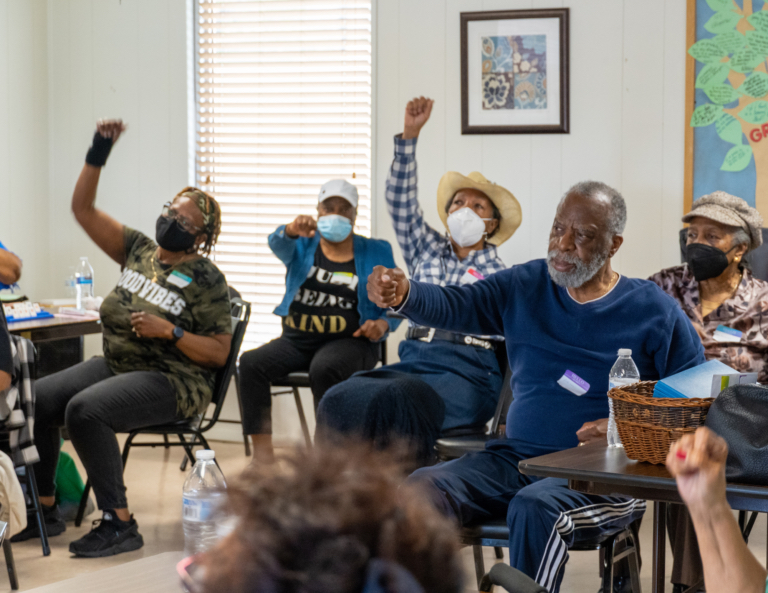
Collaborating with TCU Associate Professor Pam Frable, Ph.D., and UNTHSC’s Teresa Wagner ’86, DrPH, and Bobbie Bratton, MSN, Carol Howe, Ph.D., RN, CDCES, FAAN initiated a pilot program in partnership with three Meals on Wheels senior activity centers, named Texas Dance for Health.
Higher expectations for aging have been linked to higher engagement in moderate-high intensity physical activity, especially in women. The objective of Texas Dance was to assess if older adults could achieve a heart rate exceeding 50% of their maximum (the recommended intensity level for aerobic fitness) through dancing, while also gauging their enjoyment of this activity.
With 105 participants demonstrating strong attendance, the study revealed that 68-84% of them reached the target heart rate during the dance classes.
“Our vision is to expand this program across all age groups, encouraging families to dance together while incorporating education and support for healthy lifestyles,” explains the Paula R. & Ronald C. Parker Endowed Professor in Nursing. “As a diabetes care and education specialist, my goal is to extend this public health intervention to help people prevent diabetes or better manage their diabetes.”
A Journey to Health Literacy
Over the past two years, Howe has served as the principal investigator for the “Health Literacy CARE” study in collaboration with Children’s Health, a leading pediatric health care provider.
Approximately one in three adults have low health literacy, struggling to locate, understand, appraise and use health information to make decisions about their child’s health.
“Utilizing implementation science methodologies, our focus was introducing health literacy practices within the ENT (ear, nose and throat) clinic, said Howe. “Significant positive changes reported by parents regarding their understanding of interactions with the clinical team have been encouraging.”
Techniques such as employing plain language, condensing information, breaking down complex details and utilizing the teach-back method were integral to the study’s success. The team celebrated the publication of their first paper in the “Journal of Nursing Care Quality” that highlighted the barriers and facilitators to the project and ways to address these. Yan Zhang, Ph.D., professor of professional practice and statistician in Harris College, played a crucial role in the research team to analyze the data, resulting in submission of their second paper.
Their health literacy journey at Children’s Health continues with a new study using the iPARIHS framework, launched in October 2023. Led by co-principal investigators Howe and Children’s Health Director of Nursing Research & Evidence Based Practice Lindsey Patton, Ph.D., APRN, PCNS-BC, this initiative involves collaboration with 27 other clinics to outline and assess strategies for supporting health literacy champions in implementing health literacy practices within pediatric ambulatory clinics.
The Next 10 Years
Looking ahead, the field of health literacy is gaining momentum, with Healthy People 2030 incorporating health literacy as one of its five overarching goals. The expanded definition now includes organizational health literacy, emphasizing the accessibility of health information for patients within clinical teams and health care systems.
“My intention is to persist in my efforts to enhance health literacy practices within clinical teams and health care systems.”
In diabetes research, the focus in the coming years will be on preventing and effectively managing diabetes to prevent complications. Advocacy work will be directed towards increasing access to and affordability of diabetes education, medications and technology.